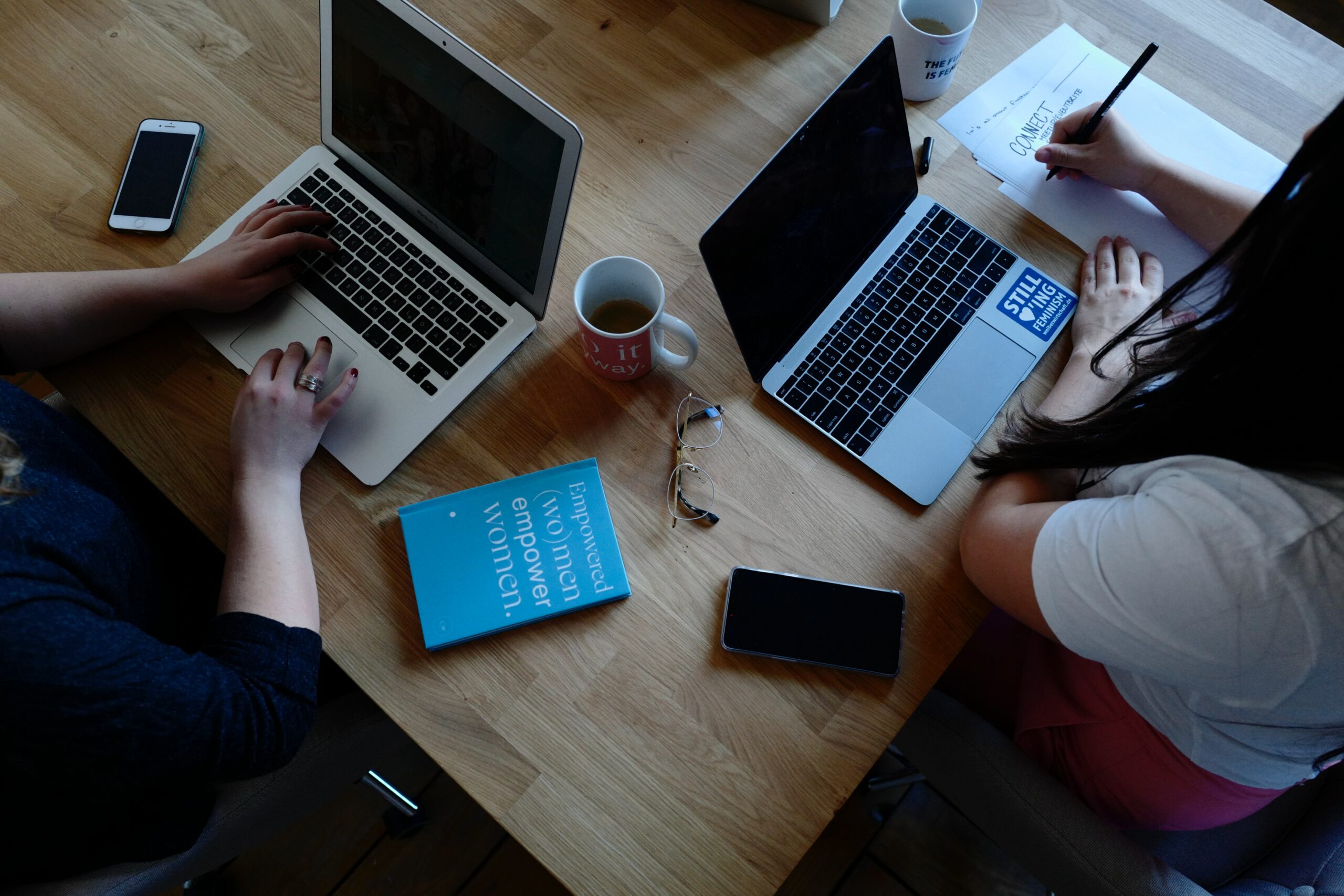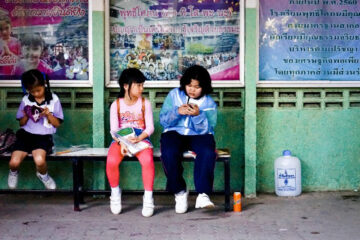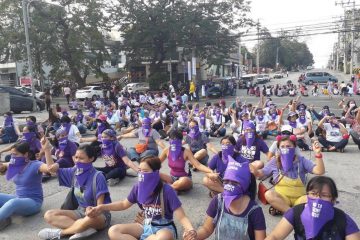Internet Rights and Principles: Emerging Policy, Shifting Landscape, a joint activity of the Foundation for Media Alternatives and the Internet Society-Philippines Chapter, was held on 28 November 2016 at the Oracle Hotel and Residences, Katipunan Avenue, Loyola Heights, Quezon City.
A year ago, FMA launched the PH Declaration on Internet Rights and Principles and envisioned it as the document that reflects the Filipinos’ dreams, hopes and aspirations of what Philippine Internet should be. It will be the basis of our collective action for public education, capacity-building, and sustainable development. Those who signed the declaration agreed that the document will be reviewed in order to determine how to move it forward and involve more stakeholders.
In the morning session of the activity, the first speaker, Ms. Mary Grace Mirandilla-Santos, Vice President of ISOC-PH, presented the internet structure in the Philippines, which would provide a useful context when participants come up with strategies and recommendations.
“Understanding Philippine internet is more than just studying the infrastructure but also the ownership and control of these structures and resources. All of these are important in understanding the access, affordability, and quality of Philippine internet,” Santos said.
Ms. Santos also pointed out that the Philippines is unique among other countries because the telecommunications industry is private sector-driven, as opposed to the case in most countries where there is significant government spending.
The next talk was expected to relate the infrastructure to human rights, as in the case of online misogyny, online trolling, and other emerging human rights violations online. It would address the question, “how do you go from structures and regulations to rights in a democratic space?”
Mr. Winthrop Yu started his presentation with the question: “What’s the internet really like?”which stemmed into a discussion of the development of the internet over the years.
“Before, everything in the internet was centralized. In fact, the internet was built piecemeal. Ideally, internet is distributed. In reality, it is decentralized, which means that intelligence is at the edges – it’s the nodes that have computing power, because there is no center. A network of autonomous networks is very flexible and much more efficient because data is chopped up into packets and network infrastructure is shared,” Yu said.
In other countries, different players hold the wholesale, distribution, and retail of internet access. The existing duopoly in the Philippines, which is characterized by monolithic industries that control everything from landing stations to the households, is rare in the world.
Regardless of this duopoly, proposals for open access have been filed in Congress. The problem is that the definition of“network”by the NTC is that one cannot do network when there is no public franchise. This problem can be ameliorated if wholesale pricing is transparent. Local loop unbundling, for example, allows for retailers to be treated as a separate entity, treat same way as you treat other wholesalers/ISPs.
There are many retailers in the Philippines, especially in the provinces. These retailers are very sensitive to local needs. The problem is that they still buy connectivity from PLDT and Globe, and there is no transparency in this process.
Another problem is that internet connectivity in landing stations are cheaper than in far places. Globe will soon have a landing station in Davao, but right now, most landing stations are in Luzon. Retailers cannot buy directly from landing stations, but only from telcos (except for export processing zones).
However, internet rights defenders argue that free basics is neocolonialism.
Affiliations between content providers and ISPs may give rise to what are called walled gardens, which is not a new phenomenon. In the past, walled gardens faded away as people started to prefer open internet. Walled gardens are coming back at present time in the form of free basics (internet.org). The rationale behind free basics is that companies such as Facebook believe that it is better to give people some internet than to leave them with none.
After Yu’s presentation, a panel composed of Marnie Tonson from the Philippine Internet Freedom Alliance (PIFA), Rommel Bagares from CenterLaw, and Lito Averia, discussed about the breach of data at the Commission on Elections.
The panel identified three issues – (1) a valid take down of social media accounts, bullying, and censorship in social media, particularly in Facebook. Known accounts such as journalist Ed Lingao and Paul Quilet, the person who started a Change.org petition against Mocha Uson, were taken down because of violation of Facebook community standards. However, there is no transparency on the basis for when a Facebook account is taken down. They do not really tell the user which post violated their guidelines. It is therefore important to look at the contract between Facebook and its users. We must also look at how these private services are operating and whether they are breaching our rights; (2) is the rebranding or HeyKuya (Philippine company) to YesBoss (an Indonesian company). In their advisory email, HeyKuya stated that they are going to use the data for YesBoss for various purposes, including building anartificial intelligence platform. A simple reading of this case would point to a violation of HeyKuya’s privacy policy. However, YesBoss is in Indonesia, so what can the Philippine National Privacy Commission do?; and (3) is sexual harassment and violence online. Senator Risa Hontiveros recently filed Senate Bill No. 1251, on gender-based electronic violence. Another bill addressing the same problem is that proposing mandatory social media registration, under which social media providers will be held liable for cases of online violence. However, what the proposed law really does is require all citizens to get an official ID.
The last speaker for the morning Session is Dr. Clarissa David, who tackled the social and communication aspects of current issues in social media, such as the topic of dealing with hate online.
She talked about the social side of the internet, particularly how human beings behave in online platforms.
“Facebook had a large influence over the outcome of the recent US elections. Every year, new online platforms all with their own form of engagement and with their own purposes, but Facebook still dominates, especially in the Philippines. The country is not a big user of Twitter and its Twitter use is very seasonal,” David said.
The recent election campaigns (both in the Philippines and in the United States) turbo-charged the use of social media for political purposes. Social media was used in paid campaigns, which , in turn, drove online political discourse.
These new uses have also raised new concerns with regard to social media, such as fake news, misinformation, and child safety. Furthermore, social media is no longer easily separable from other social issues.
Paid content generators are used to copy and paste content from real news to fake news sites. Such practices created an ecosystem of misinformation. These issues point to the fact that Facebook’s content-driven newsfeed is the problem Algorithms are content-agnostic and do not tell the user if certain content is fake or abusive; algorithms are driven only by engagement.
“There is empirical evidence that directly links online anonymity to incivility. This is why there is a higher incidence of incivility in Twitter, which provides more leeway for anonymity than Facebook does. According to research by Anderson et al on polarized opinions, greater exposure leads to political discord. The more people see views that negate their own, the more they move towards an extreme view. In effect, this weakens the willingness of people to talk among unlike-minded peers, which in turn leads to self-censorship. Ultimately, the only ones left are self-selected people who are willing to fight it out,” David added.
The privileging of citizen journalists over professional journalists did not happen organically. It was deliberately a part of one of the election campaigns.
We must therefore figure out how to take back democratic spaces. This involves asking questions like “If Facebook was a country, how much regulation would we tolerate?” At the same time, we need to do something in the offline space and make sure that we are attacking each problem separately. ###
![]()



0 Comments